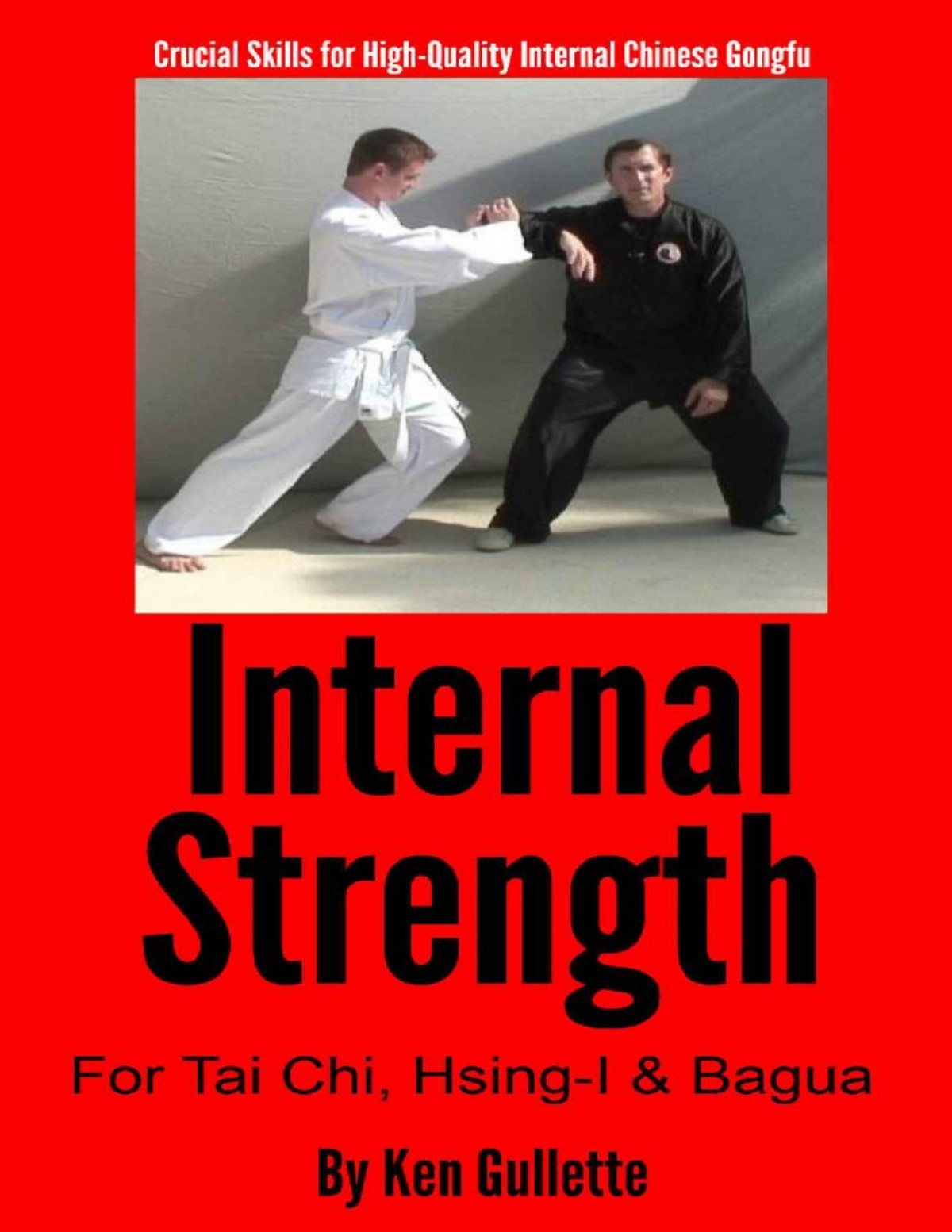

Most ebook files are in PDF format, so you can easily read them using various software such as Foxit Reader or directly on the Google Chrome browser.
Some ebook files are released by publishers in other formats such as .awz, .mobi, .epub, .fb2, etc. You may need to install specific software to read these formats on mobile/PC, such as Calibre.
Please read the tutorial at this link: https://ebookbell.com/faq
We offer FREE conversion to the popular formats you request; however, this may take some time. Therefore, right after payment, please email us, and we will try to provide the service as quickly as possible.
For some exceptional file formats or broken links (if any), please refrain from opening any disputes. Instead, email us first, and we will try to assist within a maximum of 6 hours.
EbookBell Team

4.7
46 reviews
ISBN 10: B00D8D6NS4
Author: Ken Gullette
The internal arts of Chinese kung-fu -- Taijiquan, Xingyiquan, and Baguazhang -- are wrapped in mystery and often sold as mystical and metaphysical. In reality, the internal arts are fighting arts, designed for self-defense and requiring unique body mechanics that enable you to display relaxed power, or as it is more commonly described, particularly in the case of Tai Chi, movements that are "iron wrapped in cotton."
There are six primary physical skills required for high-quality internal kung-fu. The foundation of those skills are: establishing and maintaining the ground path at all times, and establishing and maintaining peng jin at all times.
These are physical skills, not metaphysical. And you cannot gain these skills simply by doing "moving meditation." To gain real skill in these arts, you must work hard. That's why they call it kung-fu (gongfu), because kung-fu means "skill acquired through hard work."
The 65 photos and descriptions in this book give you the foundation, the first two key skills that provide the foundation for the rest.
Ironically, most internal arts schools do not teach these skills
Part I – Foundations of Internal Strength
Introduction: What is “Internal Strength”?
The Internal Martial Arts Triad: Tai Chi, Hsing-I, Bagua
The Myth vs Reality of “Qi” and “Jin” – Practical Body Mechanics
Key Physical Skills for Internal Arts
4.1 Establishing and Maintaining the Ground Path
4.2 Developing Peng Jin and Other Internal Energies
4.3 Whole-Body Movement: When One Part Moves, All Parts Move
4.4 Spiralling & Silk-Reeling Energy (Chan Ssu Jing)
4.5 Dantien Rotation: Lead, Don’t Follow
4.6 Opening and Closing the Kua: The Hip/Groin Mechanism
Principles of Movement & Structure
5.1 Rooting, Alignment, and Body-Method
5.2 Connection: From Ground → Waist → Limbs
5.3 Relaxation vs Tension: The Paradox of Force
5.4 Fajin: Issuing Power in Internal Arts
Common Mistakes and Misconceptions in Internal Training
Part II – Internal Strength in Tai Chi (Taijiquan)
7. The Body Mechanics of Tai Chi Forms
7.1 The Six Harmonies & Three External/Three Internal
7.2 Silk-Reeling in Tai Chi Movement
7.3 Ground Path & Peng in Tai Chi
8. Push-Hands and Sensitivity Training
8.1 Principles of Yielding and Redirecting Force
8.2 Internal Strength Applications in Two-Person Work
9. Self-Defense Applications: Hidden in the Form
9.1 Neutralising Force
9.2 Issuing Jin from the Root
10. Advanced Internal Strength: Cannon Fist, Fajin Bursts, Spiral Power
Part III – Internal Strength in Hsing-I (Xingyiquan)
11. Structure and Intent in Hsing-I
11.1 The Five Element Fists & Twelve Animals
11.2 Forward Power vs Spiralling Power: A Contrast
12. Body Mechanics of Hsing-I Internal Strength
12.1 Ground Path & Peng in Hsing-I Context
12.2 Whole-Body Movement in Direct Attack
13. Applications & Training Methods in Hsing-I
13.1 Linking Forms and Two-Person Training
13.2 Weapon Applications: Staff, Sword
14. Common Mistakes Seen in Hsing-I Training
Part IV – Internal Strength in Bagua (Baguazhang)
15. Movement Culture of Bagua: Circling, Twisting, Changing Directions
16. Internal Strength Mechanics in Bagua
16.1 Ground Path and Peng in Bagua’s Unique Footwork
16.2 Spiralling and Whole-Body Movement in Bagua Transitions
17. Applications in Bagua: Stepping, Changing Angles, Surprise Attacks
18. Bagua Training Methods for Internal Strength
18.1 Walking the Circle with Internal Strength
18.2 Palm Changes, Partner Drills
19. Common Mistakes and Pitfalls in Bagua Practice
Part V – Integrating the Three Arts & Developing Internal Strength Over Time
20. Cross-Style Comparison: Where Tai Chi, Hsing-I & Bagua Meet
21. Developing a Curriculum: From Beginner to Intermediate to Advanced
22. Training Methods for Internal Strength
22.1 Solo Drills & Foundations
22.2 Partner Work and Application
22.3 Weapons and Internal Strength
22.4 Conditioning, Recovery & Longevity
23. Teaching Internal Strength: What Good Instructors Do
24. The Journey Ahead: Refinement, Depth, Lifelong Practice
internal tai chi chuan of ny
tai chi internal energy
tai chi internal power
internal chi
an introduction to tai chi
tai chi intensity
tai chi for strength and balance
Tags: Ken Gullette, Strength, Internal